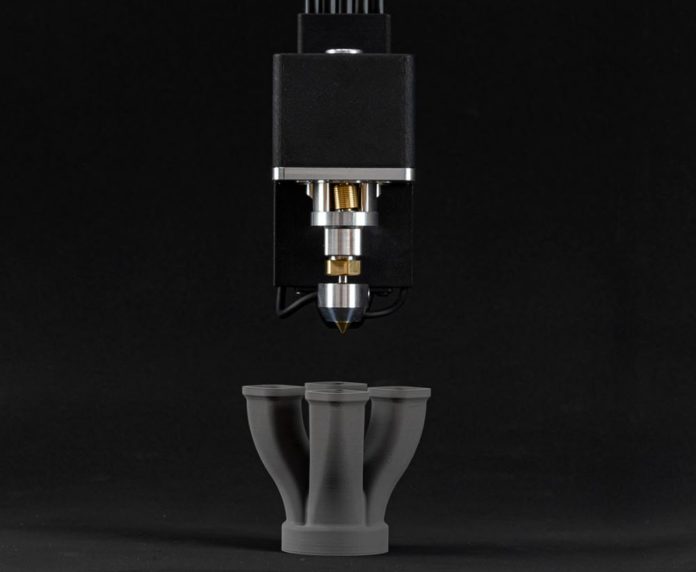Belgian 3D Printing startup FuseLab is a company that officially debuted on the AM Sphere two years ago. We discovered the company at the latest in-person Formnext event where it unveiled a different type of FDM 3D printing technology.
Over the past two years, the 3D printer manufacturer has been working on an enhanced version of its flagship product, the Fuselab FL300. The FL300M 3D has been built on the technology capabilities of its predecessor.
With a build volume of 300 x 300 x 280 mm, the new 3D printer has a multimaterial capability and can process metal powder filaments. With an open filament system, 2.85mm filament diameter, the machine has an enclosed build chamber with HEPA filtration and features a rigid motion system.
However, the main feature that distinguishes this new printer from the previous one, is the independent Dual Extruders (IDEX) with rotary extruder that has been enhanced for metal powder based filament printing.
Traditional Fused Filament Fabrication (FFF) extruders feed the filament into the melt zone with 1 or 2 drive gears, thereby only providing 1-2 points of contact between the drive system and the filament. At higher speeds or extrusion forces this can result in slipping and subsequent under-extrusion. FuseLab resolved this with a design based on 3 drive rollers each offering 12 points of contact, for a total of 36 points of engagement between the drive mechanism and the filament. This is particularly beneficial for 3D printing with metal powder based filaments. These filaments are more fragile due to their high metal powder and low binder content, the distributed contact of the rotary extruder minimizes the risk of filament failure. In addition, the non-slip characteristic of the extruder eliminates under-extrusion, resulting in high solidity, which is especially desirable in metal parts, a press release from the company states.
FFF 3D printing remains the most widely-used and most affordable AM technology on the market. As a first entry point to the AM world, this technology remains an ideal process to fabricate components with fully enclosed hollow features or internal support structures that are not possible to achieve with powder or resin-based systems hence the increasing number of solutions that are deployed on the market to improve it.
Remember, you can post job opportunities in the AM Industry on 3D ADEPT Media free of charge or look for a job via our job board. Make sure to follow us on our social networks and subscribe to our weekly newsletter : Facebook, Twitter, LinkedIn & Instagram ! If you want to be featured in the next issue of our digital magazine or if you hear a story that needs to be heard, make sure you send it to contact@3dadept.com






